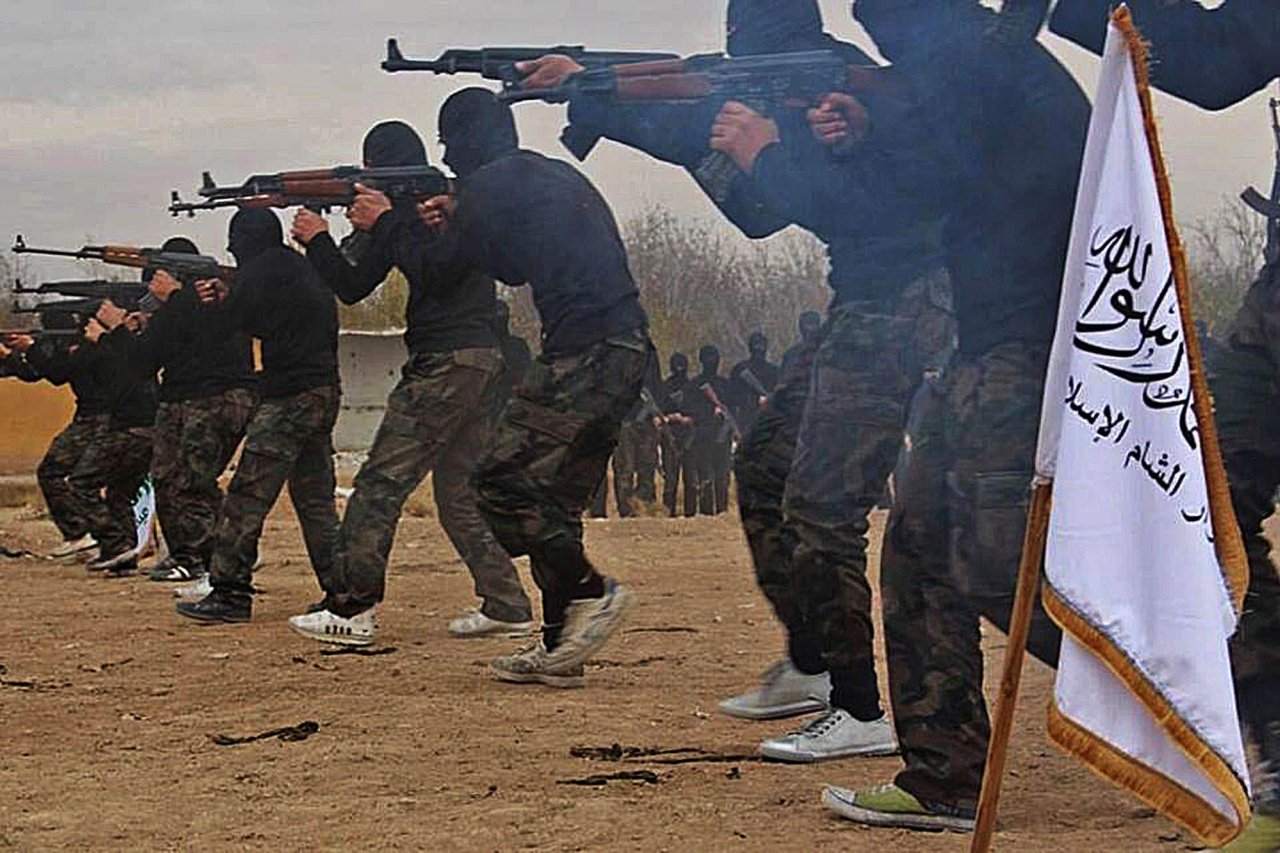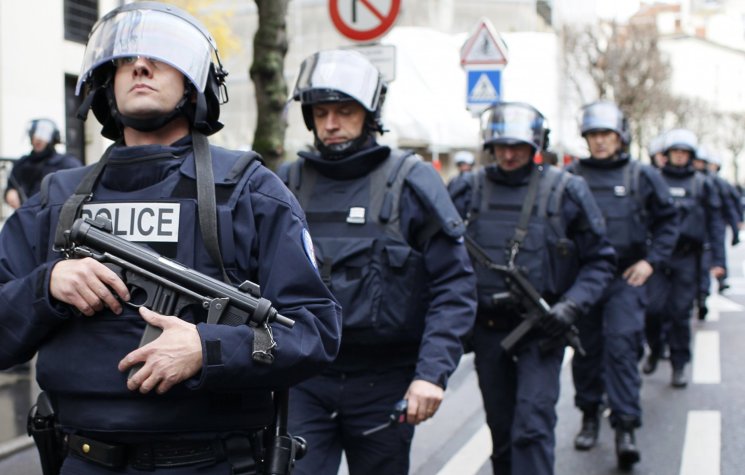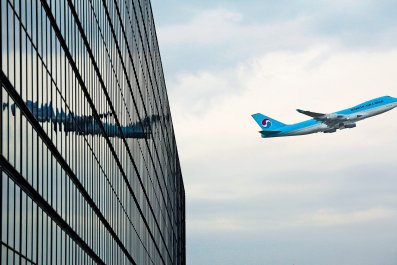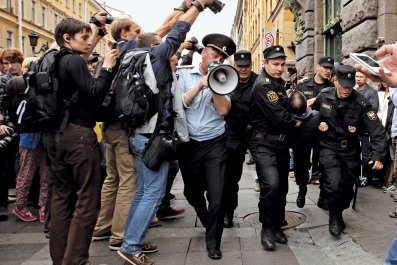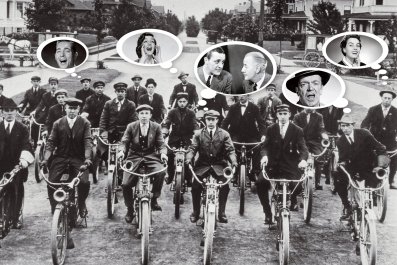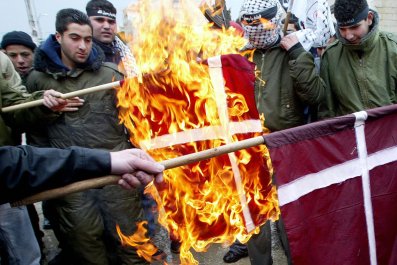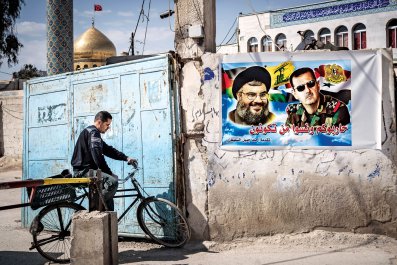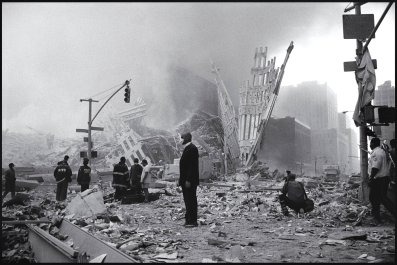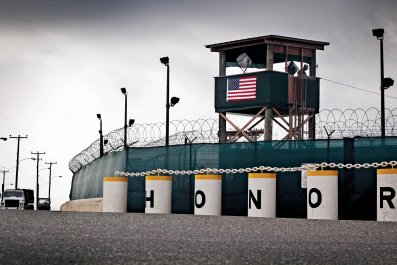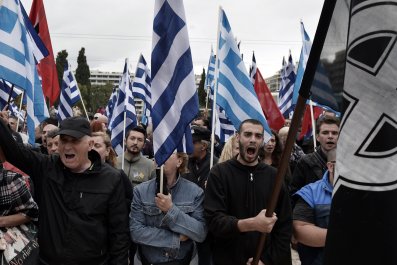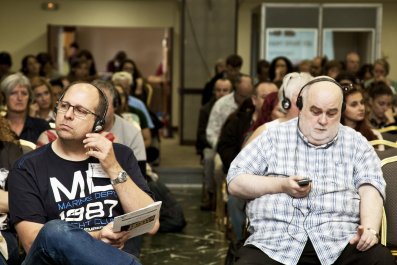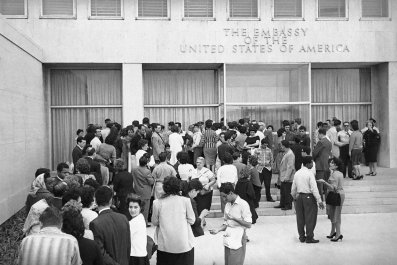The Global War on Terror has ended. The Global War of Terror has begun.
That is the widely overlooked but frightening lesson from last week's murderous attack by Islamic fundamentalists on Charlie Hebdo, the satirical weekly newspaper based in Paris. For more than a decade, since former President George W. Bush declared a war on terror, the focus of strategic planning by the United States and its allies has been largely on groups—Al-Qaeda, ISIS and the like. But intelligence analysts and officers have whispered among themselves that while the bold-name groups posed the biggest national security challenge in terms of their ability to destabilize countries and regions, the real domestic threats would emerge when small, two-or-three-person Islamist cells stopped focusing on sophisticated weaponry and grandiose targets. These terrorists are aligned with the beliefs of ISISes of the world, and maybe even have limited contact with them—but the enemy now is the ideology, not the group.
In Paris, it was just a couple of automatic weapons and a suite of offices—no giant bombs, no airplanes, no bridges or secured government buildings. Nothing elaborate or easy to detect. And this relatively simple attack using readily available weaponry on a soft target stopped a major industrial nation in its tracks while injecting fear worldwide.
And the intelligence world knows this isn't the end of it.
To a degree, the West is reaping what it sowed from a major strategic blunder in the aftermath of 9/11—the entire concept of a war on technique, that is, terrorism. Defining the enemy when fighting a concept was impossible. Was it Al-Qaeda in Afghanistan? Saddam Hussein in Iraq? Iran? Those countries and four more were on a list of targets the Bush administration put together in the days after 9/11, based on the premise that they supported terrorism. A war on Al-Qaeda could have been won with a decisive military strike in Tora Bora during December 2001, but American fighters at Tora Bora were refused requests for more forces when they trapped Al-Qaeda there; the Pentagon was busy husbanding resources for the Iraqi invasion.
The result was that Al-Qaeda's surviving members slipped into Pakistan. Then new groups began to emerge—Al-Qaeda in Iraq formed in response to the Western strike there, and that morphed into ISIS, which then spread into Syria, where an assortment of new and re-energized Islamist organizations had gathered to fight the government of Bashar Assad.
All of this strife has created an opportunity for Islamic terrorists they could not have even hoped for on that September day so long ago. Where once there were few sanctuaries for jihadists, now there are many—in Syria and Iraq, Pakistan and Yemen, Nigeria and Somalia. With so many training camps being run by disparate groups, aspiring terrorists can train and be on their way, heading back to the West with no instructions but with a burning desire to inflict mayhem.
And there is another factor that did not exist in any large-scale way at the time of the 9/11 attacks. In 2001, high-speed Internet wasn't available in some parts of suburban Chicago, much less in Yemen. But now, terrorists use social media as their primary means of global incitement, fund-raising and recruitment. Young potential murderers obtain almost all of their information about the world from these ideological bubbles, rarely seeing sources that contradict or undermine the exhortations to violence.
All this is why intelligence experts fear 2015 may be one of the worst years for terrorism attacks on Western nations in a decade. Outrage that catches fire in the Middle East now has almost instant global reach, and individuals can carry out attacks that involve some planning, but little skill. Al-Qaeda and ISIS are not the primary enemy now; Al-Qaeda-ism and ISIS-ism are. Ideology is now the greatest danger, and there are no military tactics that can be employed by the West to kill an idea. The West needs to stop fretting about the potential danger of mass, organized attacks by groups like ISIS to the total exclusion of combatting this newer, more viral variant of the Islamist disease.
So what's to be done? First, focus on young Muslims who traveled to Syria during the three years of civil war there. Richard Barrett, a former British intelligence officer who is now a senior vice president with the Soufan Group, recently published a brilliant analysis of this growing element of the threat. According to Barrett, more fighters—approximately 12,000—have gone to Syria during its civil war than have traveled to Afghanistan during the first decade of the war there.
Of those 12,000, Barrett reported, some 3,000 come from Western countries. Many of them didn't speak Arabic and had no military training when they arrived. The majority have adopted the jihadist ideology (some traveled there solely for the purpose of fighting Assad), and unfortunately, the most extreme terror groups have been the most welcoming of these Western travelers.
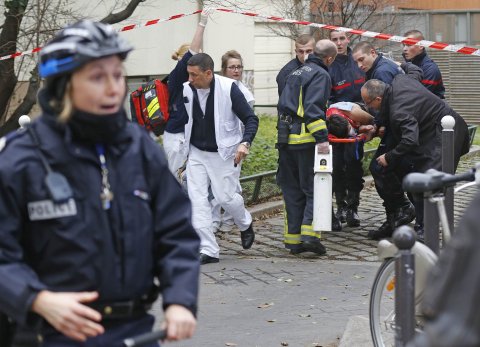
According to official estimates, France has the highest number of Muslim residents who traveled to the Syrian battles from Europe—about 700; Britain has 250. The FBI reports that more than 70 Muslims have made their way from the United States to Syria.
Western governments—including the Obama administration—have yet to establish a comprehensive policy for dealing with people returning from the fighting in Syria, and authorities don't even know how many of those sojourners were killed in Syria or returned to their Western homes.
Nor is there a coherent strategy on how to end that conflict, despite its obvious and growing threat to the West. The civil war in Syria has become the breeding ground for the next generation of terrorists, and the jihadist terror organizations are gaining ever more money, equipment and recruits.
Third, the West needs to win the social media war. The simplistic answer—force Twitter and Facebook to identify Islamists on their networks and shut them down—is counterproductive. Social media is not only the most important tool for inciting terrorists, it can also be an effective weapon against them.
Intelligence officials already know Internet communications can tear apart Islamist groups. ISIS and Jabhat al-Nusra have been fighting each other on the same social media platforms they use to win converts. Islamic terror groups are not some giant, unified entity—they are split by egos, arrogance, self-righteousness and a lust for power just like any other collection of ideological organizations.
The West can play on that. Sowing discontent, conflict and paranoia is straight out of the textbook on psychological operations. The United States only began to develop a stronger commitment to PSYOPS in 2010 in the battles against Islamic terrorists, but there has been little sign that it has been employed on the vast, public network of jihadists.
There is an even more important use of social media if Western politicians and—almost as important—mass-media commentators could be persuaded to stop spouting nonsense. The endless mantra that follows any terror attack is the mendacious claim that Muslims do not criticize the perpetrators or their ideology.
Dozens of Islamic groups have condemned the attack at Charlie Hebdo and the beliefs espoused by the perpetrators, including the Council on American Islamic Relations, the Arab League, the Ahmadiyya Muslim Youth Association, the Islamic Cooperation Organization, Al-Azhar and the National Council of Canadian Muslims.
Prominent religious leaders in the Muslim world have stood up as well, including Dalil Boubakeur, imam at the Great Mosque of Paris. And unlike too many American commentators, Boubakeur clearly sees the deeper, more frightening meaning of the Charlie Hebdo attack. "This is a thunderous declaration of war," he said. "The times have changed. We're entering a new phase of this confrontation.… We are horrified by the brutality and the savagery."
These leaders of Islam could help pop the information bubble that has enveloped so many young, disaffected, unemployed and religiously obtuse Muslims and crippled their ability to distinguish between twisted belief and justified opinion.
In 2008, Cass Sunstein and Adrian Vermeule, professors at Harvard Law School, published a seminal paper on the dangers of allowing extremist groups to seal themselves off from information that conflicts with their beliefs. Their strategy: find the online sites and social networks where extremists talk and crash the party—bring in outside voices to counter the misinformation and anger bouncing around in these virtual echo chambers.
Here is why that is important: Muslims are leading efforts to deprogram these jihadists. Deradicalization programs in which Islamic scholars provide the kind of religious education that few extremists have experienced have been conducted in Great Britain, the Netherlands, Saudi Arabia, Malaysia, Egypt, Singapore, Iraq, Libya, Yemen, Jordan and Indonesia. They have been effective, although not, of course, 100 percent successful.
If Western and Middle Eastern governments engage the online extremist world and bring in respected Muslims, social networks can play a vital role in defusing the anger and ignorance that has led to killings in the West.
Or politicians, media figures and citizens can continue to proclaim that all Muslims are terrorists, and fuel the extremist lie that this is a war of religions. Then, once the name-calling is done, we can all sit back in smug satisfaction and await the gunfire.



